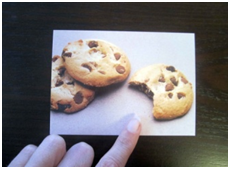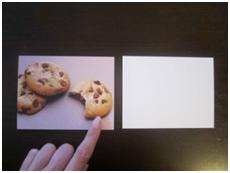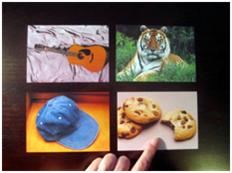With Autism Awareness Month just around the corner, there are loads of walks to raise awareness and money. Here are just a few across the country. We encourage everyone to participate! Let us know about any others going on near you.
Organization for Autism Research (OAR)
Whether you are a runner, walker, donor or volunteer, your contribution makes you part of OAR’s Run for Autism team and helps create awareness for the cause. When you raise money for OAR’s autism research, more than $.87 of every dollar you raise will directly fund research studies that help answer some of autism’s most pressing questions.
Run for Autism 2011 Events Schedule:
March 20, 2011- New York City Half Marathon
April 16, 2011- Blue Ridge Marathon and Half Marathon
May 14, 2011- Rite Aid Cleveland 5K presented by OAR
May 15, 2011- Dick’s Sporting Goods Pittsburgh Marathon, Half Marathon & Marathon Relay
May 15, 2011- Chloe K 5K Run Rock Ride
May 15, 2011- Rite Aid Cleveland Marathon, Half Marathon and 10K
* If the race you are interested in isn’t on this list, you can still run and raise money for autism research through OAR’s iRun For Autism program. You can sign up for one of OAR’s charity partner events or any other event of your choice through their Run America and Tri for Autism programs.
For more information about these events, please visit: https://www.firstgiving.com/OAR
Easter Seals Disability Services’ Walk With Me
April 2. 2011 (7:30am)- Grapevine Mills Mall, TX
The indoor walk will unite hundreds of Dallas/ Fort Worth area participants at Grapevine Mills Mall to raise funds for Easter Seals services, drive awareness of issues affecting the disability community, and change the lives of individuals and families living with disabilities.
For more information about this event, please visit: www.ntx.easterseals.com
Variety the Children’s Charity 5th Annual Autism Walk for Awareness, Resources, and Education
April 3, 2011- Plymouth Meeting, PA
Variety will hold its 5th annual Autism Walk in the Plymouth Meeting Mall on April 3rd to benefit Variety’s Autism Resource Center. Families, schools, companies, and individuals will join together to raise money for this resource center that provides immediate support to children and youth with autism in our community. This event also has the support of the Autism Society of America, who is proud to support Variety’s fifth annual walk for Autism.
For more information or to register for this event, please visit:
https://variety.kintera.org/faf/home/default.asp?ievent=465730
Caldwell College’s 2nd Annual 5K Run/Walk for Autism
April 16, 2011- Caldwell, NJ
Calwell College hosts this annual event to help raise public awareness of autism. In addition, this race will help raise funds for Caldwell College’s on-campus Center for Autism and Applied Behavior Analysis. This state-of-the-art facility allows Caldwell College to serve the needs of hundreds of individuals with autism and help them and their families to lead more satisfying and productive lives.
For more information or to register for this event, please visit:
https://www.caldwellcollege5krun.com/home.php
Northwestern Pennsylvania Autism Society’s 10th Walk
April 30, 2011- Presque Isle State Park, PA
ASA-NWPA is organizing this two-mile walk to increase awareness of autism, to support national research, and to fund projects and activities for individuals with autism in our community. Everyone is invited to participate, including the children. You may rollerblade and bring strollers or wagons. They’ll have the jumping inflatables (weather permitting), face painting, theme basket auction and autism merchandise booth. Snacks and drinks will be available. Lunch (hot dog and chips) will be provided to 1,000 participants.
For more information or to register for this event, please visit: https://www.nwpa-asa.org/WalkInformation.asp
Walk Now for Autism Speaks
Walk Now for Autism Speaks is a fun-filled, family friendly event and is Autism Speaks’ single most powerful force to fund vital research that will lead them to the answers we need. Thousands will be united by a single cause by joining Walk Now for Autism Speaks. Participants will not only raise funds, but become a part of a fun and supportive family focused community. Participants are also welcome to join their new “Grand Club” (walkers that raise $1,000 or more).
For more information about this event, please visit: https://www.walknowforautismspeaks.org/faf/home/default.asp?ievent=443494
Upcoming Walks for Autism Speaks:
2011 Walk Now for Autism Speaks: Greater Hartford
East Hartford, CT- Sunday, June 5, 2011
2011 Walk Now for Autism Speaks: Treasure Coast
Port St. Lucie, FL – Saturday, April 2, 2011
2011 Walk Now for Autism Speaks: West Texas
Abilene, TX – Saturday, April 2, 2011
2011 Walk Now for Autism Speaks: Broward County
Fort Lauderdale-Davie, FL – Saturday, April 9, 2011
2011 Walk Now for Autism Speaks: Cumberland Tri-State
Cumberland, MD – Saturday, April 9, 2011
2011 Walk Now For Autism Speaks: Sonoma
Windsor, CA – Saturday, April 9, 2011
To find a Walk for Autism Speaks in your neighborhood, please visit:
https://www.walknowforautismspeaks.org/site/c.igIRL6PIJrH/b.4356939/k.BF85/Home.htm









